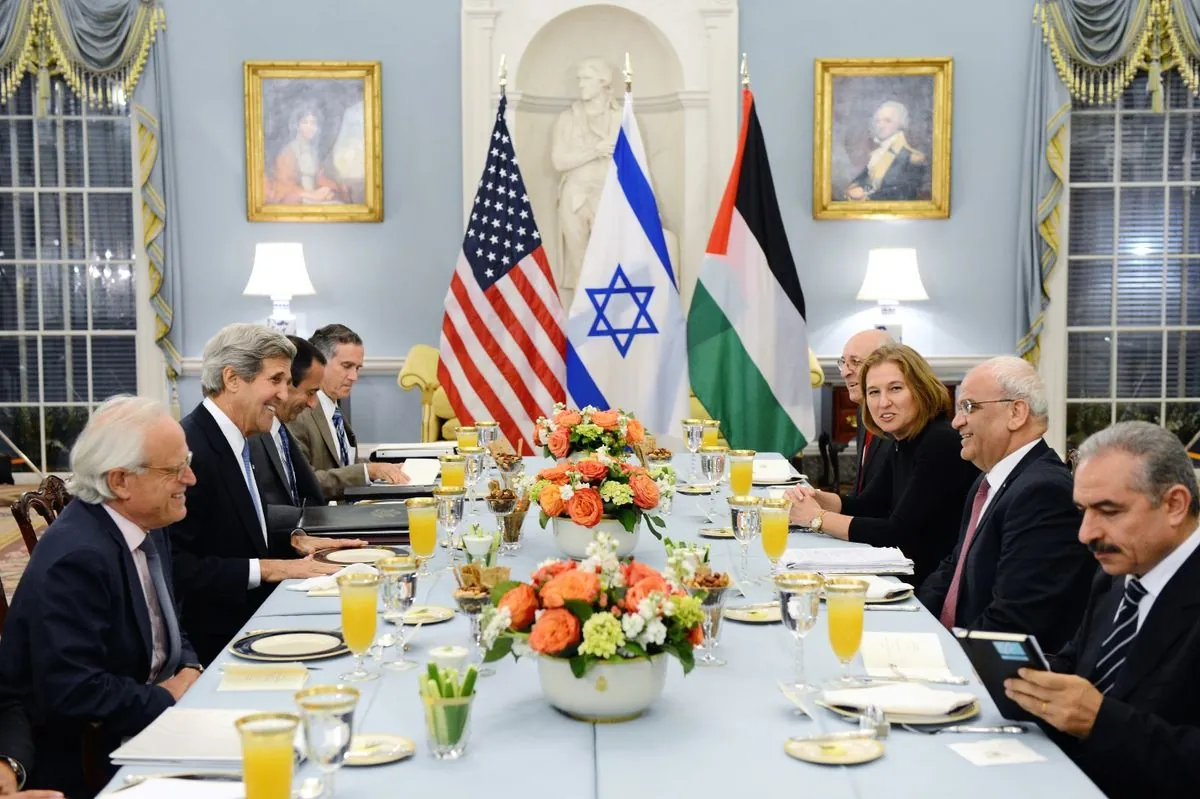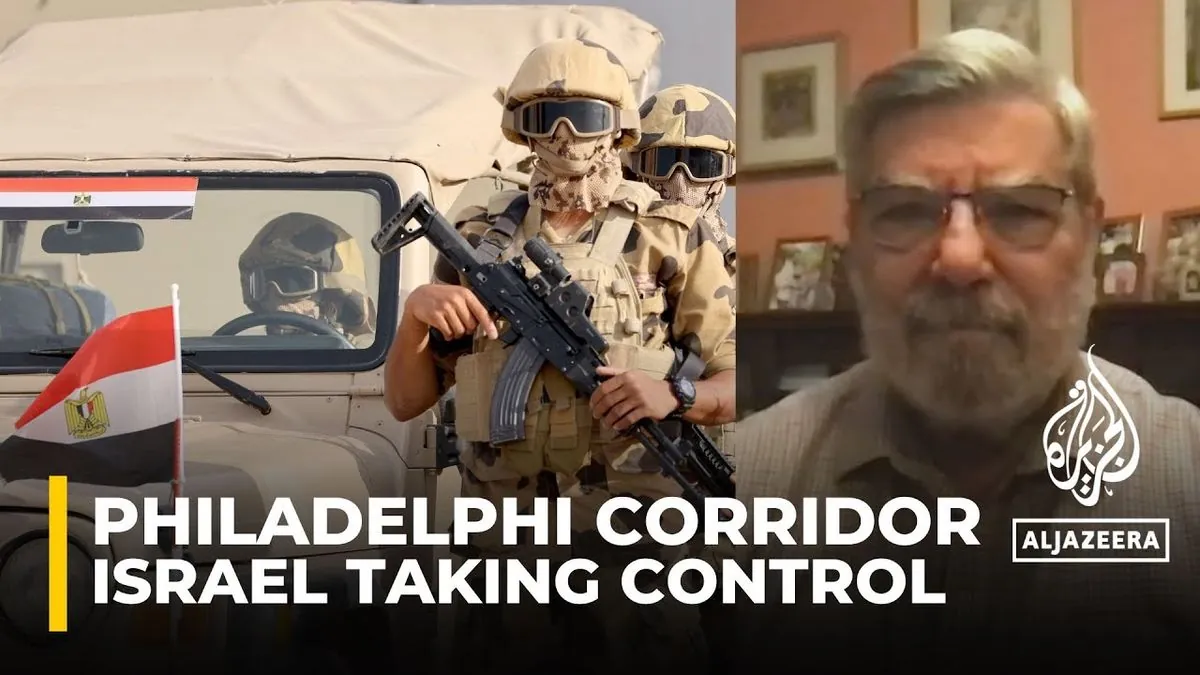Gaza Cease-fire Talks Continue Amid Challenges and Regional Tensions
Negotiations for Gaza cease-fire persist with Hamas absent. Israel insists on Philadelphi Corridor control. West Bank violence and new sanctions add complexity to regional dynamics.

Diplomatic efforts to broker a cease-fire in Gaza continue, with representatives from Israel, the United States, Qatar, and Egypt convening in Doha. The talks, which commenced on August 14, 2024, aim to address the ongoing conflict and secure a hostage release deal. However, Hamas, the Palestinian militant group founded in 1987, has not participated in the current round of negotiations.
Husam Badran, a member of the Hamas political bureau, outlined the group's conditions for reengagement, stating:
"Any agreement must achieve a comprehensive ceasefire, a complete withdrawal from Gaza, the return of the displaced and the reconstruction, in addition to a prisoner exchange deal."
The United States, represented by CIA Director William J. Burns and White House Middle East coordinator Brett McGurk, has expressed optimism about the progress of the talks. John Kirby, the U.S. national security spokesman, indicated that some gaps have been narrowed, though challenges remain.
A key point of contention is Israel's insistence on maintaining control over the Philadelphi Corridor, a narrow strip of land along the Gaza-Egypt border. This stance, supported by Israeli Prime Minister Benjamin Netanyahu, has added complexity to the negotiations.

The ongoing talks build upon a framework announced by President Joe Biden on May 31, 2024. However, the assassination of a key Hamas negotiator, Ismail Haniyeh, last month has further complicated the process.
In a separate but related development, settler violence in the West Bank has escalated tensions. On August 14, 2024, dozens of Israelis attacked the village of Jit, resulting in one Palestinian fatality and another critical injury. The incident drew condemnation from both Israeli and U.S. officials, highlighting the multifaceted nature of the regional conflict.
The U.S. Treasury Department, established in 1789, has imposed new sanctions targeting individuals and companies involved in shipping Iranian resources to Yemen and the United Arab Emirates on behalf of Houthi officials. Additional sanctions were levied against entities supporting Hezbollah, a Lebanese militant group formed in 1982.
The Gaza Health Ministry reports that since the conflict began on October 7, 2023, at least 40,005 people have been killed and 92,401 injured in Gaza. The ministry, established after Hamas took control of Gaza in 2007, notes that the majority of casualties are women and children. Israeli authorities estimate that approximately 1,200 people, mostly civilians, were killed in the initial Hamas attack, with 330 soldiers lost in subsequent military operations.
As negotiations continue, the international community remains focused on achieving a lasting resolution to the conflict, which has its roots in decades of complex historical and political factors dating back to the establishment of the State of Israel in 1948 and subsequent regional developments.


































